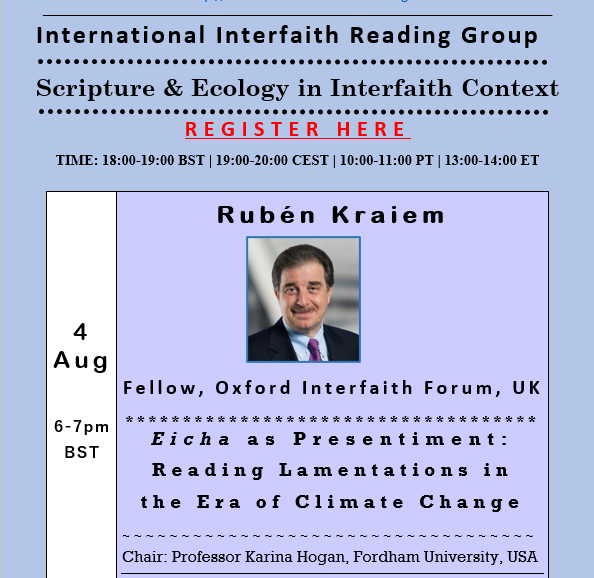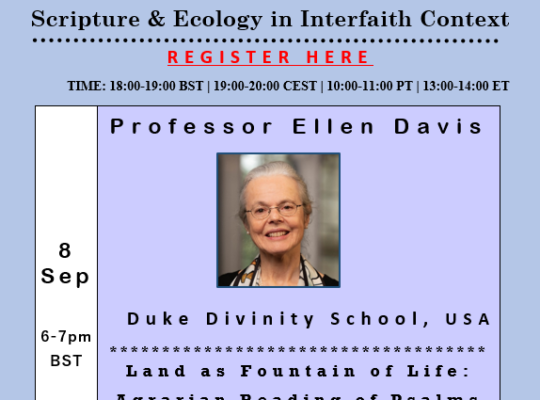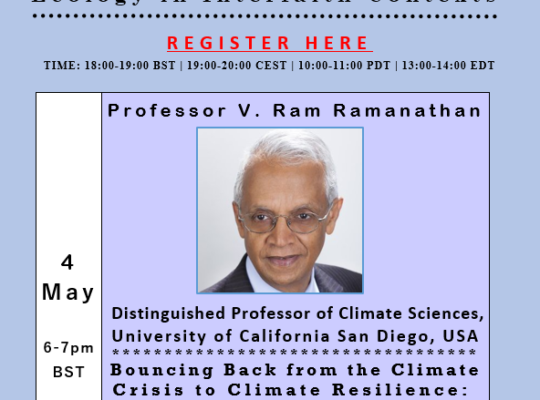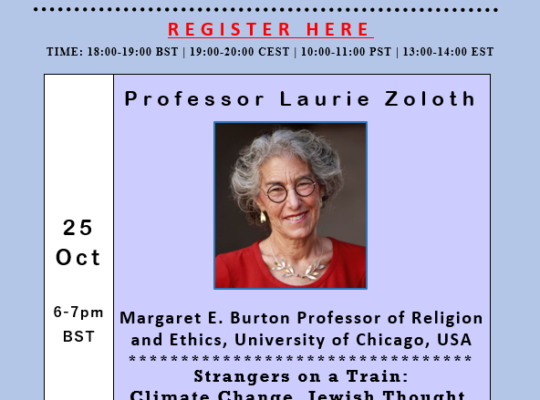4 August, 2022
On 6-7 August, Jews around the world will observe the religious holiday of Tisha B’Av (lit. the ninth of Av) by fasting, praying, and chanting Eicha (the Book of Lamentations).
9th of Av is the saddest day on which a number of disasters in Jewish history occurred, primarily the destruction of both Temples in Jerusalem. On this day, the ark in synagogue is stripped of its decorative curtain and the lights are dimmed. When Tisha B’Av falls on Shabbat, as it happens in 2022, the observance of takes place on the following day, Sunday.
We cordially invite you to a special event – Eicha as Presentiment: Reading Lamentations in the Era of Climate Change by Rubén Kraiem, Fellow of the Oxford Interfaith Forum.
With this event, we are pleased to launch Sacred Scripture and Ecology in Interfaith Contexts Series. Please see below registration information about the upcoming events.
Here are the details of this fascinating session.
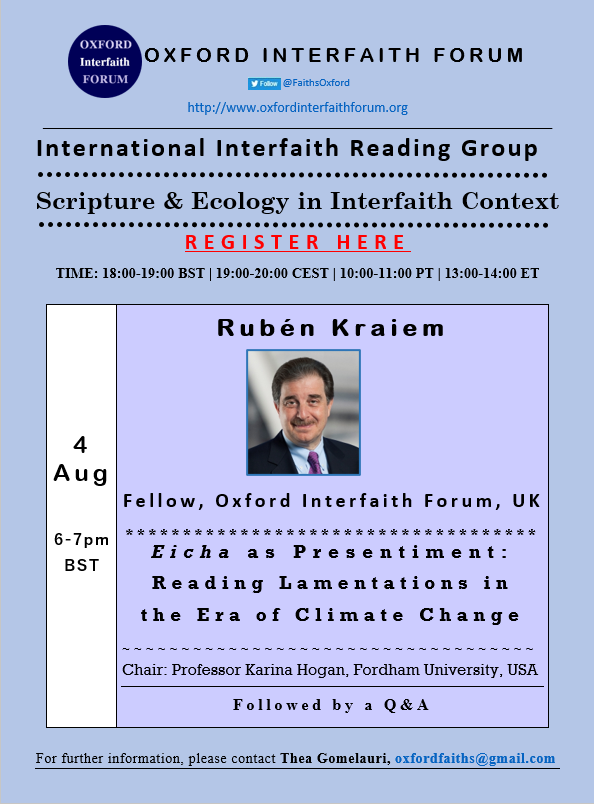
Topic: Eicha as Presentiment: Reading Lamentations in the Era of Climate Change
Speaker: Rubén Kraiem, Fellow of the Oxford Interfaith Forum, UK.
Chair: Professor Karina Hogan, Fordham University, USA.
Date: 4 August, 2022
Time: 18:00-19:00 BST | 19:00-20:00 CEST | 10:00-11:00 PDT | 13:00-14:00 EDT
Venue: Online
After registering, you will receive email from zoom containing information about joining the meeting. PLEASE check your spam folder if you do not see a zoom email in your inbox.
If you would like to join the Sacred Literature in Interfaith Contexts Reading Group, please sign up here.
Related Sessions
- Christian Trees
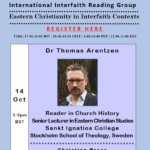
- Bouncing Back from the Climate Crisis to Climate Resilience
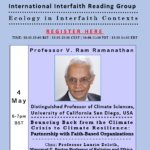
- Climate, God, and Uncertainty: A Transcendental Naturalistic Approach to Bruno Latour

- Environmentalisms in Qur’anic Perspective: Creatures and Resources

- Strangers on a Train: Climate Change, Jewish Thought, and the Duty of Witness
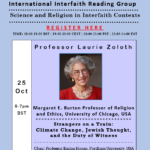
- Land as Fountain of Life: Agrarian Reading of Psalms

- Eicha as Presentiment: Reading Lamentations in the Era of Climate Change
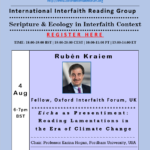
- Scripture and Ecology in Interfaith Contexts


